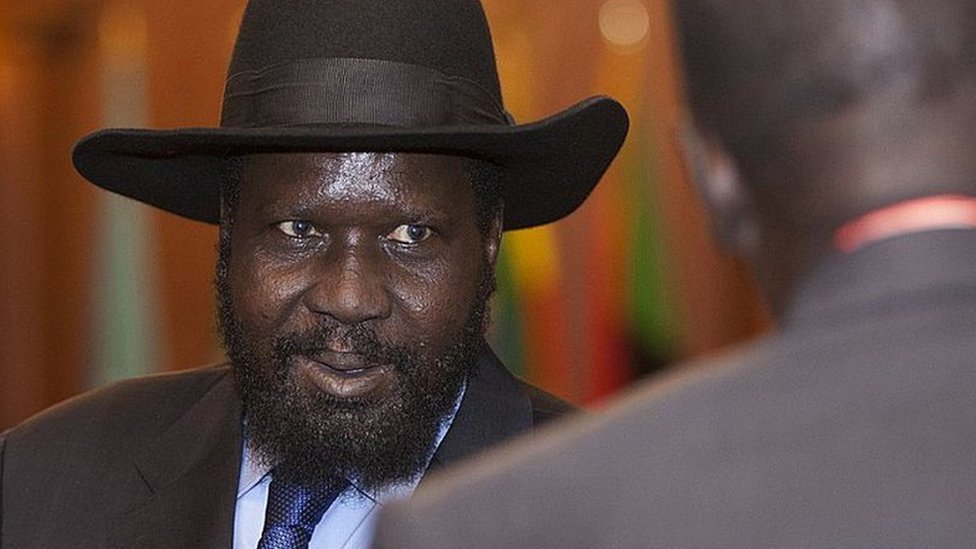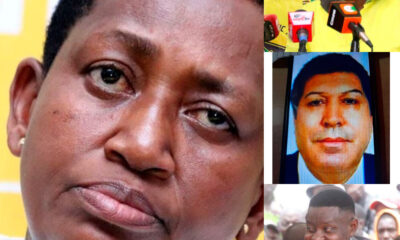Africa
South Sudan Hit With Cash Crisis, Unable to Pay Salaries for Weeks
Commercial banks across Juba and other major cities have been unable to meet customer demand for physical currency, leaving businesses and individuals struggling to conduct even basic transactions.

JUBA, South Sudan — A severe liquidity crisis has paralyzed South Sudan’s banking system, leaving government employees, including members of parliament and security forces, unable to access their salaries for nearly a month, sparking urgent calls for accountability from the country’s financial leadership.
The crisis came to a head during a heated session of the Transitional National Legislative Assembly on Monday, where Michael Ruot Koryom, a member of parliament representing Nyirol County, revealed that salaries deposited in banks have been inaccessible for nearly a month. “All South Sudanese working in government institutions, including the organized forces, cannot withdraw their money,” Ruot said, calling for Finance Minister Dr. Marial Dongrin Ater and central bank officials to be summoned before parliament.
The cash shortage has exposed the fragility of South Sudan’s economy, already battered by years of conflict and over-reliance on volatile oil revenues. According to the World Bank’s latest South Sudan Economic Monitor, the country’s economy is projected to contract by 30 percent in FY24/25, marking the fifth consecutive year of economic decline.
The immediate crisis centers on a fundamental mismatch between digital salary payments and physical cash availability. John Agany, the parliament’s former information committee chair, confirmed that while salaries have been processed electronically, banks simply lack the physical currency to dispense funds. “The central bank is not providing liquidity,” he said. “This is a dire situation affecting every citizen—including us.”
The shortage has reached such critical levels that fifteen lawmakers failed to attend Monday’s parliamentary session because their cars had no fuel, highlighting how the crisis has cascaded beyond salary payments to affect basic governmental functions.
Anei John Akok, a member of parliament representing Northern Bahr el Ghazal, criticized his colleagues for failing to prioritize the economic emergency. “South Sudan is in a critical situation. Why aren’t we discussing inflation, unpaid civil servant salaries, or skyrocketing fuel prices?” Akok demanded during the session.
The situation has become so desperate that Finance Minister Dr. Marial Dongrin Ater acknowledged in June that the shortage of South Sudanese pounds has “crippled the economy, plunging the government into uncertainty.” Despite this admission, the government has offered few concrete solutions beyond acknowledging the problem exists.
In a controversial move that has since been walked back, Central Bank Governor Dr. Addis Ababa Othow initially revealed in closed-door meetings that printing more money was being considered as an urgent solution to address the liquidity shortage. However, the central bank later backtracked on these statements, suggesting internal disagreement over monetary policy responses.
The economic turmoil extends far beyond government salaries. Inflation has surged to catastrophic levels, basic goods are increasingly out of reach for ordinary South Sudanese, and the crisis is sending shockwaves across the region, affecting trade and economic conditions in neighboring countries.
The banking sector’s inability to provide basic cash withdrawal services has effectively created a cashless economy by force rather than design. Commercial banks across Juba and other major cities have been unable to meet customer demand for physical currency, leaving businesses and individuals struggling to conduct even basic transactions.
Critics argue that the parliament’s response has been inadequate given the severity of the crisis. Ter Manyang, executive director of the Center for Peace and Advocacy, accused lawmakers of being “dangerously out of touch” by prioritizing foreign policy debates over domestic economic emergencies. “A parliament that ignores its own economic collapse and security crises is dangerously out of touch,” Manyang said. “The people are suffering, and their leaders must be held accountable.”
The crisis reflects deeper structural problems in South Sudan’s economy. Since independence in 2011, the country has failed to diversify beyond oil exports, leaving it vulnerable to global price fluctuations and regional disruptions. Years of civil conflict have further weakened institutions and deterred foreign investment, creating a cycle of economic decline that the current cash shortage has only accelerated.
Assembly Speaker Jemma Nunu Kumba acknowledged the severity of the situation but deferred immediate action, instructing lawmakers to formally submit a motion for debate rather than addressing the crisis directly. This procedural response has drawn additional criticism from civil society groups who argue that bureaucratic processes are inadequate when citizens cannot access their own money.
The liquidity crisis has also highlighted the precarious position of South Sudan’s organized forces, including police and military personnel, who have not received salaries despite being essential for maintaining stability in a country still recovering from years of civil war. The inability to pay security forces could have serious implications for maintaining order and implementing the fragile peace agreement.
As the crisis enters its second month with no clear resolution in sight, ordinary South Sudanese are bearing the brunt of their government’s financial mismanagement. Many citizens report being unable to afford medical treatment, food, or fuel, as MP Ruot emphasized when he asked, “Many of us are sick and cannot even afford treatment. Who is fooling us—the central bank or the finance ministry?”
The international community, which has invested heavily in South Sudan’s stability through peacekeeping and development aid, is watching the situation closely. The cash crisis threatens to undermine progress made in implementing the 2018 peace agreement and could destabilize a region already facing multiple humanitarian challenges.
Without immediate action to address both the immediate liquidity shortage and the underlying structural weaknesses in South Sudan’s economy, the current crisis threatens to deepen into a broader economic collapse that could have lasting implications for the world’s youngest nation and its people.
Kenya Insights allows guest blogging, if you want to be published on Kenya’s most authoritative and accurate blog, have an expose, news TIPS, story angles, human interest stories, drop us an email on [email protected] or via Telegram
-

 News2 weeks ago
News2 weeks agoTHE FIRM IN THE DOCK: How Kaplan and Stratton Became the Most Scrutinised Law Firm in Kenya
-

 Economy2 weeks ago
Economy2 weeks agoIran Demands Arrest, Prosecution Of Kenya’s Cup of Joe Director Director Over Sh2.6 Billion Tea Fraud
-

 Grapevine1 week ago
Grapevine1 week agoA UN Director Based in Nairobi Was Deep in an Intimate Friendship With Epstein — He Even Sent Her a Sex Toy
-

 Politics2 weeks ago
Politics2 weeks agoPresident Ruto and Uhuru Reportedly Gets In A Heated Argument In A Closed-Door Meeting With Ethiopian PM Abiy Ahmed
-

 Investigations1 week ago
Investigations1 week agoHow Mexico Drug Lord’s Girlfriend Gave Him Away
-

 Business2 weeks ago
Business2 weeks agoSafaricom Faces Avalanche of Lawsuits Over Data Privacy as Acquitted Student Demands Sh200mn Compensation in 48 Hours
-

 Investigations2 weeks ago
Investigations2 weeks agoKenya’s DCI Opens Probe on Russian Man Who Secretly Filmed Sex Escapades With Women — But There’s a Slim Chance They’ll Ever Get Him
-

 Investigations1 week ago
Investigations1 week agoHow Close Ruto Allies Make Billions From Affordable Housing Deals

















